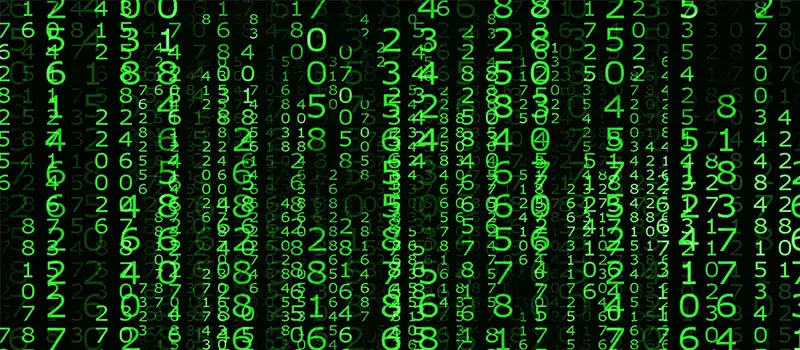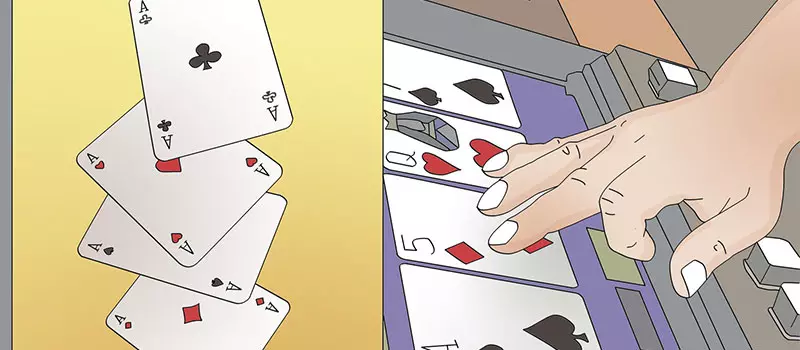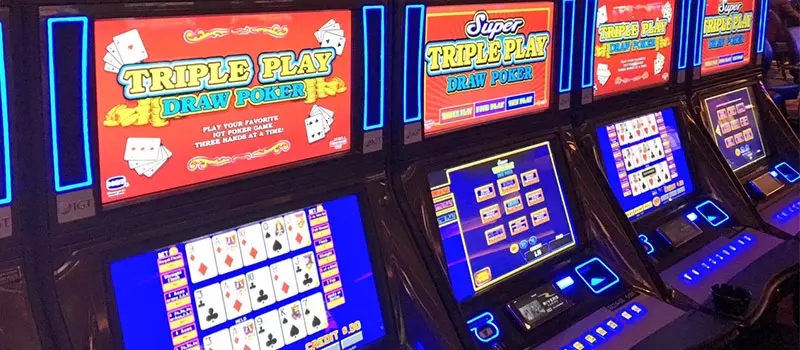The Random Number Generators, often abbreviated as RNG, are the backbone of all virtual casino games and video poker is not an exception. The RNG is a special programme which is used to determine the outcome of the game as it simulates a perfectly shuffled deck of cards, which ensures every video poker hand ever dealt is completely random.
When it comes to casino games, randomness is extremely important because it guarantees fair play is always at hand, if you would excuse the pun. This way, all video poker players have equal chances of forming a qualifying winning hand.
Yet, many less seasoned players have not acquired a proper understanding of how these RNGs work and this has led to the emergence of a good number of misconceptions about video poker, all of which are equally ridiculous. In the following article, we will explain how Random Number Generators work in video poker as well as lay the biggest misconceptions surrounding the game to rest.
How Random Number Generators Work in Video Poker
As was explained above, the sole purpose of the RNG in video poker is to ensure the result of each hand is based on the random selection of cards from a standard, 52-card deck, i.e. if no jokers are in play. The purpose of this software is to generate random, long numerical sequences and transform them into shorter numbers using complicated algorithms, with each number corresponding to a specific card.
The RNG shuffles the cards in the deck incessantly. When players hit the Deal button, this piece of software will randomly pick five cards from the deck, which constitute the initial hand. The software would then continue to shuffle the remaining cards from the deck until the players eventually make up their minds which of the initial five cards to keep and which ones to discard.
The shuffling of the deck ceases the very moment the Draw button is pressed, at which point the software would pick the respective number of replacement cards from the top of the remaining deck. It is important to mention that when the RNG has not been messed up with, all cards from the deck have an equal probability of coming up both on the initial deal and on the draw. In other words, the odds of receiving any random card are the same as they would be if players draw cards from a perfectly shuffled deck.

What is more important here is that the odds of forming any qualifying winning hand are known and can be calculated with great accuracy. For example, the probability of creating the highest ranking hand, the Royal Flush, is estimated to be around 40,000 to 1. This calculation is easy to perform as you simply need to multiply the odds of forming the hand by its corresponding payout to figure out what the game’s expected return is.
One of the key things players should remember is that the RNG produces hundreds of random numbers each and every second. There are billions of outcomes for a given set of cards. As a matter of fact, the outcome of a hand is pre-determined the moment the player hits the Deal button. After players have received their initial five cards, the replacements of the discarded cards are selected from the very top of the remaining deck right after the Deal button is pressed.
How many credits you bet does not affect the outcome, either – the odds remain the same regardless of the size of your bet. The latter is completely irrelevant to the RNG. In addition, the RNG never stops working, its frenetic activity continues endlessly even when no one is playing on that particular video poker game until eventually a player hits the Deal button again.
Randomness Control
Some players are preoccupied with the fairness of video poker games and argue some of them are rigged in favour of the casinos. While this might be the case in some instances, where the gambling operators are not licensed and therefore, are unreliable, the RNGs in reputable and regulated casinos are a highly controlled and strictly monitored pieces of technology.
The whole idea behind the RNG is to ensure absolute randomness and fairness of all available games, not just video poker. There are absolutely no causes for concern on players’ behalf as long as they have opened their accounts at online casinos which bear the seal of approval of a strict and highly recognised regulatory body, such as the UK Gambling Commission, the Malta Gaming Authority, or the Gibraltar Gambling Commission, for example.
Additionally, all online casino games, video poker included, undergo rigorous tests for randomness which are performed by independent, third-party auditors to ensure there is no conflict of interest. Some of the most respected testing agencies in the online gambling industry include eCOGRA, iTech Labs, Gaming Laboratories International, and TST (Technical Systems Testing). Their testing facilities are recognised on the global scale. Some of the key aspects of the said tests include identifying the algorithm of the RNG, searching for any weaknesses in the said algorithm, and resolving the issues, if any are found.
Such tests are performed on a regular basis to ensure players are kept up to date with results at all times. More importantly, many of the most renowned online casino operators in the industry share the test results with their player-base by publishing them on their websites. So if you are a video poker fan and see the certification seal or logo of one of the above-listed testing agencies on the website of your preferred online casino, you practically have nothing to worry about as far as randomness is concerned.

Understanding Randomness in Video Poker
The Oxford English Dictionary defines randomness as the property of “being done or chosen without somebody deciding in advance what is going to happen, or without any regular pattern”. Let’s explore further how randomness and odds work in the game of video poker. The odds and house edge are inevitably based on a random game when discussed in advanced video poker literature.
In a random game of Jacks or Better, the probability of obtaining any four of a kind (quads) is approximately 1 in 423 rounds. However, a player should not expect to get this hand after exactly 422 rounds of play because a specific hand is never due in a random game. The software randomly deals each new hand off a fresh 52-card deck so that each hand has a 1 in 423 probability of being quads.
It is irrelevant how many rounds have passed without producing four of a kind. The odds of getting this hand (or any other hand for that matter) remain the same on every single round. We, humans, are prone to apophenia, which is our brains’ tendency of finding patterns within random unrelated data.
In a truly random game, four of a kind will indeed occur once in every 423 rounds in the long term. However, there is no way for the player to know exactly how many rounds will pass between the last quads and the next. The only certain thing is the more rounds they go through, the closer they will get to the game’s long-term statistical averages.
Video poker players sometimes have the feeling they are due to receive a given hand but this is not the case. The odds of getting a royal flush, a straight, or any other hand ranking are the same on the first round and the thousandth round of play. It is impossible to predict with certainty which hand will come next in a randomly dealt game.
Randomness manifests itself constantly when one plays video poker. Sometimes players will hit many strong hands within a short period and at other times, they will observe a scarcity of them. This phenomenon is all due to randomness and there is no escaping it. The best course of action is to embrace this particularity of the game and prepare a big enough bankroll so you can weather the dearth of high-paying hands.
Widespread Misconceptions about Video Poker
Now that we have explained what Random Number Generators are and how they work in video poker, we shall proceed by dispelling some of the most widespread myths, surrounding video poker games, their fairness, and randomness.
Video Poker Cards Generator
Expected Value and Expected Return
What Video Poker Games Pay Best
Tens or Better Video Poker
Jacks or Better
Betting the Maximum Affects the Odds
Some players fall prey to the misconception that their bet size affects the odds of getting a winning hand. Yet, there is no such thing since the purpose of the RNG is to simply produce outcomes on the basis of completely random numbers – the size of your bets are irrelevant to this piece of software.
Betting the maximum number of coins has zero impact on what hand you will eventually be dealt. Yet, maximum credit bets are recommended but for a totally different reason. You may end up collecting 16 times the payout for a Royal Flush with a five-credit bet which pays 4,000 coins as opposed to the 250 coins you get for a one-credit bet. The odds of getting the Royal Flush remain 40,000 to 1, however. This disproportionate increase in the payouts for five-credit bets on Royal Flushes is precisely what leads to the reduction of the house edge in the long term.
If you do not have sufficient funds and you wish to bet fewer coins, you can do so without worrying about your winning chances. The only thing that will be affected will be the potential return you can enjoy when landing a winning hand.
There is no Need to Use Strategy
Like any casino game, the outcome of a video poker variation, in large part, depends on one’s luck. That said, players’ decisions will also affect the result after the second draw. This is why it is a huge mistake to ignore the use of strategy and to discard cards at random.
Mastering the right strategy will allow you to gain an advantage over the house and will help you enjoy better results in the long run. Of course, even when you use optimal strategy, you can end up losing since cards are being dealt randomly and no one can predict the outcome of every round. Despite that, playing without using any type of strategy could cost you more losses than you have anticipated suffering.
Cards are Shuffled Only when Players Hit the Deal Button
One of the biggest misconceptions about video poker is that the cards are shuffled only when the player clicks on the Deal button. This could not be further from the truth, however, since the game’s RNG is in fact shuffling the cards 24/7 until the Deal button is pressed at which point, the program would stop at whatever shuffle combination it had the millisecond the button was hit. Because of this, there is no way for players to correctly guess what cards the next hand would consist of.

Video Poker Games Can be “Hot” or “Cold”
Another misconception is that video poker machines can he “hot” or “cold”. This results from some players’ false belief that video poker games follow a specific pattern. However, this idea is ridiculous since the RNG is always at work, even when no one is playing the game, and constantly shuffles the cards, which renders it impossible to predict which cards you will be dealt for the next hand. With around 2.6 million possible card combinations with a 52-card deck, the cards you receive on the deal or after are truly dealt at random.
Strategy Varies with Single and Multi-Hand Video Poker Games
Some players prefer to engage in multi-hand video poker games. Those with less experience falsely believe that the greater the number of hands they play simultaneously, the better the odds of collecting a payout become. This is not necessarily so – even if there is an increase in the odds of winning, it is offset by the increase in volatility which is inherent to playing multiple hands at once.
Other video poker novices are convinced that the chances of being dealt a high-ranking hand increase when they play more hands at once which causes them to change their strategy. Such change is completely unnecessary because each duplicate hand players receive is dealt from its own, separate deck. This is to say there is no change in the odds of getting a specific hand. Therefore, changing your strategy when playing multiple hands is not justified – optimal strategy remains the same for both single and multi-hand play.
The RNG is Programmed to Generate Winning or Losing Cycles
One of the main purposes of using RNG for online video poker games is to ensure the randomness of every draw. If the software had any predetermined outcomes, this would mean that the games are not free of bias and one could take advantage of that. Many believe that video poker games may be programmed to generate winning combinations at certain points. This, however, could not be further from the truth.
Instead of winning and losing cycles, this software uses an algorithm that generates random numbers that are then processed as certain cards from the deck. This means that every hand on the first and second draw is completely random and there is no way to predict when a winning combination will be revealed.

Every Video Poker Machine is the Same
There is a variety of video poker machines that can offer different payouts and incorporate distinct rules. In addition to that, sometimes a game may look like a video poker but it may turn out to be a VLT (Video Lottery Terminal). This type of machines does not utilize an RNG, which means that the outcome of the game is determined in a different manner.
You may be fooled at first glance, as VLT machines may often look like any standard video poker game. The tricky part about this type of casino game is that your decision will not affect the final result of the game. VLT machines are very similar to lottery tickets as there are predetermined outcomes that will randomly play out when you insert your coins into the machine.
You may be tricked to believe that you can keep or discard any cards that have been given to you in the first draw but as soon as you press “Draw” again, the cards on the screen will form a winning hand only if you are lucky enough to be one of the predetermined winners.
Despite the different system that is used with VLT machines, they are still random and one cannot take advantage of the way winners are chosen. This being said, you should be careful when you are looking for a real video poker variation that uses RNG to determine winners.